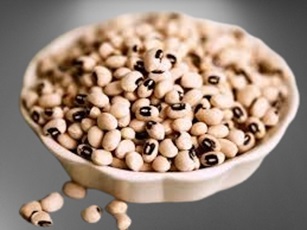BlackEyed Peas Side Effects
BlackEyed Peas Side Effects

Blackeyed peas, also known as cowpeas or black-eyed beans, are a nutritious legume commonly consumed in various cuisines worldwide. While they offer numerous health benefits, there can be some potential side effects associated with their consumption, particularly if eaten in excessive amounts or for individuals with specific dietary concerns. Here are some potential side effects of consuming black-eyed peas:
Blackeyed Peas Side Effects
Flatulence
Like many other legumes, black-eyed peas contain complex carbohydrates that can be difficult for some people to digest fully. This can lead to gas and bloating, especially if consumed in large quantities or if your digestive system isn’t accustomed to legumes.
Digestive discomfort
Some individuals may experience digestive discomfort such as stomach cramps, diarrhea, or constipation after consuming black-eyed peas, particularly if they have a sensitive digestive system or if the peas are not cooked thoroughly.
Allergic reactions
Although relatively rare, some people may be allergic to legumes, including black-eyed peas. Allergic reactions can range from mild symptoms like itching and hives to more severe reactions such as difficulty breathing or anaphylaxis.
Antinutrients
Like other legumes, black-eyed peas contain antinutrients such as phytates and lectins, which can interfere with the absorption of minerals like iron and zinc. However, soaking, sprouting, or cooking the peas can help reduce the levels of these anti-nutrients.
Purine content
Black-eyed peas contain purines, which are substances that can be broken down into uric acid in the body. High levels of uric acid can contribute to gout or kidney stones in susceptible individuals. However, moderate consumption is usually not a concern for most people, especially if they maintain a balanced diet and stay hydrated.
Interactions with certain medications
In some cases, consuming black-eyed peas may interact with certain medications. For example, they contain vitamin K, which can interfere with blood thinners like warfarin if consumed in large amounts. Individuals taking such medications should monitor their intake of vitamin K-rich foods, including black-eyed peas.
Overall, black-eyed peas are a nutritious and versatile food that can be part of a healthy diet for most people. However, like any food, it’s essential to consume them in moderation and be mindful of any potential side effects, particularly if you have dietary restrictions, food allergies, or underlying health conditions. If you have concerns about how black-eyed peas may affect your health, it’s always a good idea to consult with a healthcare professional or registered dietitian.



